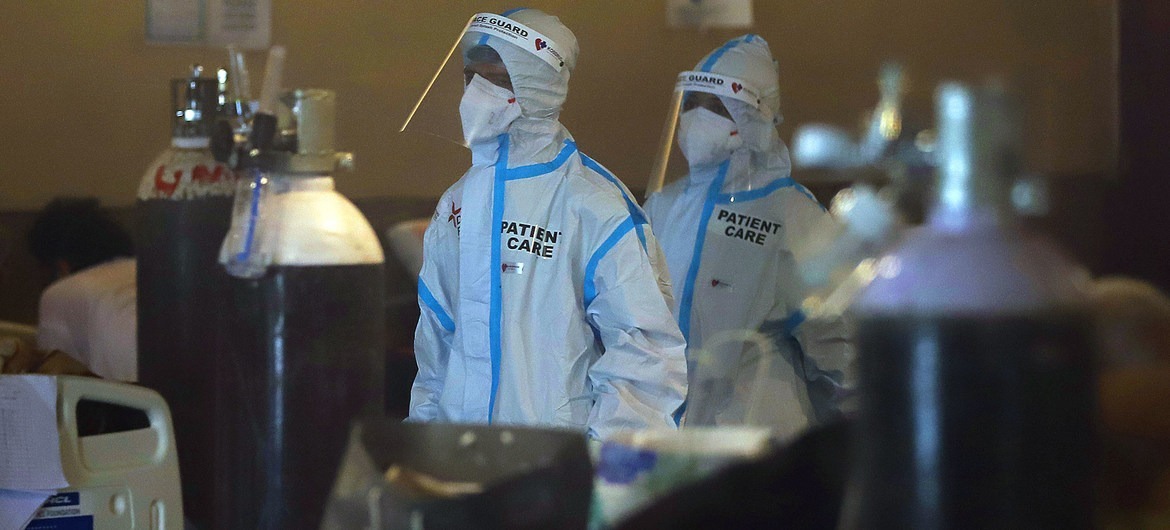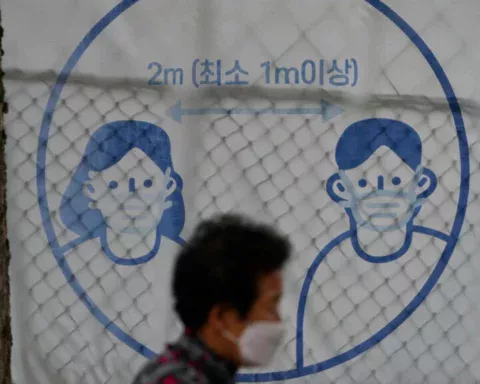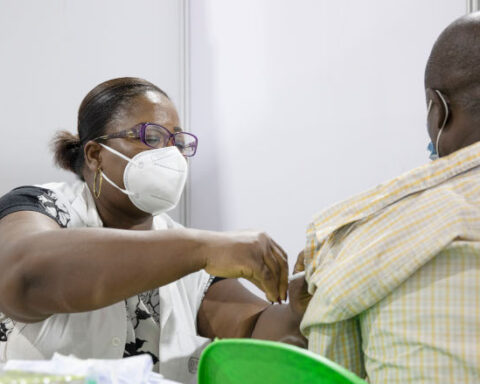CDC issued this new guidance due to several concerning developments and newly emerging data signals.
First, a significant increase in new cases reversed what had been a steady decline since January 2021. In the days leading up to our guidance update, CDC saw a rapid and alarming rise in the COVID-19 case and hospitalization rates around the country.
- In late June, the 7-day moving average of reported cases was around 12,000. On July 27, the 7-day moving average of cases reached over 60,000. This case rate looked more like the rate of cases we had seen before the vaccine was widely available.
Second, new data began to emerge that the Delta variant was more infectious and was leading to increased transmissibility when compared with other variants, even in some vaccinated individuals. This includes recently published data from CDC and our public health partners, unpublished surveillance data that will be publicly available in the coming weeks, information included in CDC’s updated Science Brief on COVID-19 Vaccines and Vaccination, and ongoing outbreak investigations linked to the Delta variant.
Delta is currently the predominant variant of the virus in the United States. Below is a high-level summary of what CDC scientists have recently learned about the Delta variant. More information will be made available when more data are published or released in other formats.
Infections and Spread
The Delta variant causes more infections and spreads faster than early forms of SARS-CoV-2, the virus that causes COVID-19
- The Delta variant is more contagious: The Delta variant is highly contagious, more than 2x as contagious as previous variants.
- Some data suggest the Delta variant might cause more severe illness than previous variants in unvaccinated people. In two different studies from Canada and Scotland, patients infected with the Delta variant were more likely to be hospitalized than patients infected with Alpha or the original virus that causes COVID-19. Even so, the vast majority of hospitalization and death caused by COVID-19 are in unvaccinated people.
- Unvaccinated people remain the greatest concern: The greatest risk of transmission is among unvaccinated people who are much more likely to get infected, and therefore transmit the virus. Fully vaccinated people get COVID-19 (known as breakthrough infections) less often than unvaccinated people. People infected with the Delta variant, including fully vaccinated people with symptomatic breakthrough infections, can transmit the virus to others. CDC is continuing to assess data on whether fully vaccinated people with asymptomatic breakthrough infections can transmit the virus.
- Fully vaccinated people with Delta variant breakthrough infections can spread the virus to others. However, vaccinated people appear to spread the virus for a shorter time: For prior variants, lower amounts of viral genetic material were found in samples taken from fully vaccinated people who had breakthrough infections than from unvaccinated people with COVID-19. For people infected with the Delta variant, similar amounts of viral genetic material have been found among both unvaccinated and fully vaccinated people. However, like prior variants, the amount of viral genetic material may go down faster in fully vaccinated people when compared to unvaccinated people. This means fully vaccinated people will likely spread the virus for less time than unvaccinated people.
Vaccines
Vaccines in the US are highly effective, including against the Delta variant
- The COVID-19 vaccines approved or authorized in the United States are highly effective at preventing severe disease and death, including against the Delta variant. But they are not 100% effective, and some fully vaccinated people will become infected (called a breakthrough infection) and experience illness. For all people, the vaccine provides the best protection against serious illness and death.
- Vaccines are playing a crucial role in limiting spread of the virus and minimizing severe disease. Although vaccines are highly effective, they are not perfect, and there will be vaccine breakthrough infections. Millions of Americans are vaccinated, and that number is growing. This means that even though the risk of breakthrough infections is low, there will be thousands of fully vaccinated people who become infected and able to infect others, especially with the surging spread of the Delta variant. Low vaccination coverage in many communities is driving the current rapid surge in cases involving the Delta variant, which also increases the chances that even more concerning variants could emerge.
- Vaccination is the best way to protect yourself, your family, and your community. High vaccination coverage will reduce spread of the virus and help prevent new variants from emerging. CDC recommends that everyone aged 12 years and older get vaccinated as soon as possible.
Masks
Given what we know about the Delta variant, vaccine effectiveness, and current vaccine coverage, layered prevention strategies, including wearing masks, are needed to reduce the transmission of this variant
- At this time, as we build the level of vaccination nationwide, we must also use all the prevention strategies available, including masking indoors in public places, to stop transmission and stop the pandemic. Everyone who is able, including fully vaccinated people, should wear masks in public indoor places in areas of substantial or high transmission.






